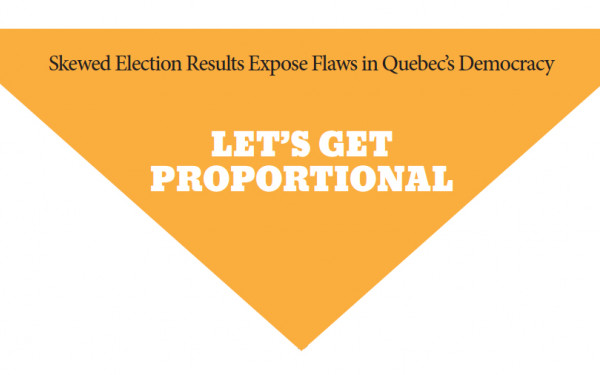Education Pivotal in Quebec Liberal Race
Liberals Choose Former Health Minister Couillard as Leader
Philippe Couillard wants to make Quebec’s brainpower his priority.
The former health minister and neurosurgeon was chosen on Sunday as the new leader of the Quebec Liberal Party, the official opposition in Quebec’s National Assembly.
“Under our impetus, Quebec will become a leader in the knowledge economy,” Couillard said in a speech, before the voting for the new leader began.
“Our future will come through education. […] We’re going to do everything we can to close the gap in Quebec in terms of the university graduation rate, as well as in technical and professional programs,” he said, referring to studies that have shown Quebec is falling behind other provinces in terms of degree-holders.
Some 2,636 delegates were elected by their riding associations to be at the leadership convention held at the Verdun Auditorium. A third of the delegation was reserved for people under the age of 26.
A total of 2,377 votes were cast. Couillard won the race with 58.5 per cent of the vote, compared to former transport minister Pierre Moreau’s 22 per cent and former finance minister Raymond Bachand’s 19.5 per cent.
What About Funding?
Education figured prominently in the leadership race, which was set in motion by Jean Charest’s decision to step down as leader of the party following the Liberals’ electoral defeat in the September 2012 election.
That election was held at least in part because the Liberal Party was seeking a clear mandate from electors to move ahead with its planned university tuition hikes after a spring of student protests that drew hundreds of thousands of people into the streets.
Bachand, Moreau and Couillard all agreed that Quebec universities need more funding to be able to strive for excellence. They also agreed on the need for students to pay more for their post-secondary education.
“I would start by saying no to free tuition, no to freezes,” Couillard said in the leadership debate held at Concordia on Jan. 26.
But over the course of the leadership race, subtle differences emerged in the positions of each of the leadership candidates.
Moreau said that if ever he became party leader and then premier, he’d look at sources of funding other than students and the government. Meanwhile, Bachand said he’d force all student associations to use a secret online ballot during strike votes.
Couillard seemed to be more amenable to the idea of indexing tuition fees, at least as a first step toward reducing the underfunding of universities while other longer-term funding solutions could be evaluated.
“I would start with a minimum of annual indexation,” he said. “I want to know what is the real amount the universities need in the coming years to be excellent, and then I will adjust the tuition fee by determining the percentage of it that [should] be covered by students.”
Those remarks drew criticism from both Bachand and Moreau.
“Indexation, Philippe, is not enough,” Bachand said. “Indexation is a cop-out.”
But Couillard also supported the idea of modulating tuition fees according to the cost of a student’s program in the longer term—a position also held, in some form, by Bachand and Moreau.
Modulation means, for example, that students in medicine would pay higher tuition fees because their program is much more costly to run.
On his campaign website, Couillard also says he’d “ensure accessibility to programs of study through an equitable and effective loan and bursary program and a repayment program that is proportional to [a student’s] revenue.”
If such a plan were implemented, it would mean that students who can expect to earn more because of their chosen area of study would have to pay back their loans faster upon entering the workforce.
It remains to be seen exactly how much of Couillard’s platform will become party policy now that he is leader.
Youth and Politics
A Quebec Liberal Party campus club may soon be coming to a university near you.
Federal political parties already have a presence on many university campuses, and Concordia is no exception. But Quebec’s political parties have comparatively little presence in the province’s institutions of higher learning.
Before the leadership candidates spoke on Sunday, interim leader Jean-Marc Fournier told the partisan crowd that the party needs to fight to prevent universities from becoming the Parti Québécois’s ground.
That seems to be a message the party’s Youth Commission is taking to heart. The youth wing says that, as the new Liberal leader assumes his position, one of its major goals will be to reach out to students and form campus clubs across the province.
“We’d like to go into university and college institutions with the new leader and with the Youth Commission to do a tour, to make clear our ideas, because last year there were misunderstandings over what we wanted to put forward,” said Madwa-Nika Phanord-Cadet, the president of the Liberal Party’s Youth Commission, referring to the Liberals’ plans to increase tuition fees.
“It’s really our priority to go get members there and to recruit students in their milieu so that they can start to become implicated in our party.”
In an interview with The Link at the youth wing’s convention on Nov. 25, Couillard said he’ll reach out beyond the party base to young Quebecers by meeting with them in educational institutions, and by increasing the Liberal Party’s online presence.
“You need to go to [students] and speak their language,” Couillard said. “By speaking their language, I mean using social media much more, because this is the way [the new] generation communicates and interacts.”
CORRECTION: In the original version of this article, Quebec Liberal Party youth wing president Madwa-Nika Phanord-Cadet was misquoted as saying, “We’d like to go into university and college institutions with the new leader to do a tour, to make clear our ideas, because last year there were misunderstandings over what we wanted to put forward.” The quote should have read: “We’d like to go into university and college institutions with the new leader and with the Youth Commission to do a tour, to make clear our ideas, because last year there were misunderstandings over what we wanted to put forward.” The Link regrets the error.

_900_675_90.jpg)



4_600_375_90_s_c1.jpg)
